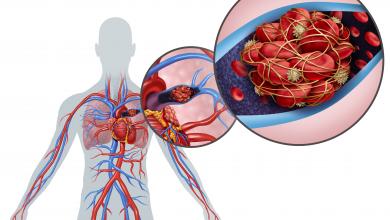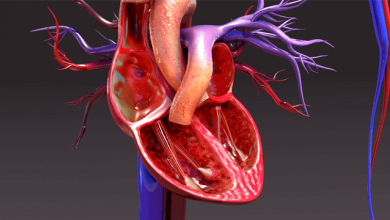Search results
Author(s):
Mattia Arrigo
,
Lars Christian Huber
Added:
3 years ago
Author(s):
Mattia Arrigo
,
Petra Nijst
,
Alain Rudiger
Added:
3 years ago
Heart failure is a clinical syndrome induced by cardiac abnormalities resulting in reduced cardiac output and/or elevated intra-cardiac end-diastolic pressures and causing symptoms that are often accompanied by typical physical signs.1 Demographic changes, improved treatment of several acute cardiac disorders, such myocardial infarction, arrhythmia and congenital heart disease, and increased long…
View more
Author(s):
Mattia Arrigo
,
Lars Christian Huber
,
Stephan Winnik
,
et al
Added:
3 years ago
In 1616, Sir William Harvey was the first person to describe the importance of right ventricular function.1 However, the right ventricle (RV) has received little attention in the past, with cardiology dealing mostly with the diseases of the left ventricle (LV) and their potential treatment. Since the early 1950s, however, the prognostic significance of RV function has been recognised in several…
View more
Author(s):
Maria Rosa Costanzo
Added:
3 years ago
Approximately 90% of the more than 1 million yearly heart failure hospitalisations in the US and Europe are a result of symptoms and signs of fluid overload and are associated with readmission rates of 24% and 50% at 30 days and 6 months, respectively.1,2 Recurrent heart failure-related hospitalisations have uniformly been associated with worse outcomes, independent of age and renal function.3
…
View more
Author(s):
Marko Kumric
,
Tina Ticinovic Kurir
,
Josko Bozic
,
et al
Added:
2 years ago
Author(s):
Ingibjörg Kristjánsdóttir
,
Tonje Thorvaldsen
,
Lars H Lund
Added:
3 years ago
From Acute Heart Failure Towards Worsening or De Novo Heart Failure
The natural history of heart failure (HF) is characterised by disease progression and episodes of worsening HF and acute decompensation requiring outpatient treatment intensification, emergency department or in-hospital care.
Acute HF (AHF), also known as acute decompensated HF, is defined as a progressive and sometimes rapid…
View more
Author(s):
Frans H Rutten
,
Joe Gallagher
Added:
3 years ago
“I cannot keep pace with my husband. Is it simply ageing, overweight and my sedentary lifestyle?” This is a common encounter in primary care, bearing in mind that around 16 % of older community-dwelling people experience at least grade 3 shortness of breath according to the Medical Research Council questionnaire (“walk slower than people of the same age because of breathlessness or have to stop…
View more
Author(s):
A Mark Richards
Added:
3 years ago
Ideally biomarkers provide the clinician with assistance in one or more of: (i) diagnosis, (ii) prognosis, (iii) choice and titration of therapy, (iv) monitoring progression of disease and (v) assessing response to treatment. The best-established biomarkers in acute decompensated heart failure (ADHF) are the B-type natriuretic peptides (brain natriuretic peptide [BNP] and N-terminal of the…
View more
Author(s):
Sivadasanpillai Harikrishnan
Added:
3 years ago
“All diseases begin in the gut.”
– Hippocrates (460–370 BC)
In recent years many researchers have described the relationship between the gut microbiota and many diseases, including heart disease, hypertension, diabetes and obesity.1,2 Diet is one of the major factors that influence the pattern of the gut microbiota.3 This article discusses how the gut microbiota affects heart failure.
What is…
View more
Author(s):
Mauro Gori
,
Attilio Iacovoni
,
Michele Senni
Added:
3 years ago
Despite the burden of heart failure (HF) with preserved ejection fraction (HFpEF),1 its pathophysiological mechanisms remain controversial and are likely to be multifactorial.2,3,4 The lack of a comprehensive paradigm applicable to all patients suggests that haemodynamic derangements responsible for this disorder may be quite heterogeneous. As recently highlighted, haemodynamic features of HFpEF…
View more














